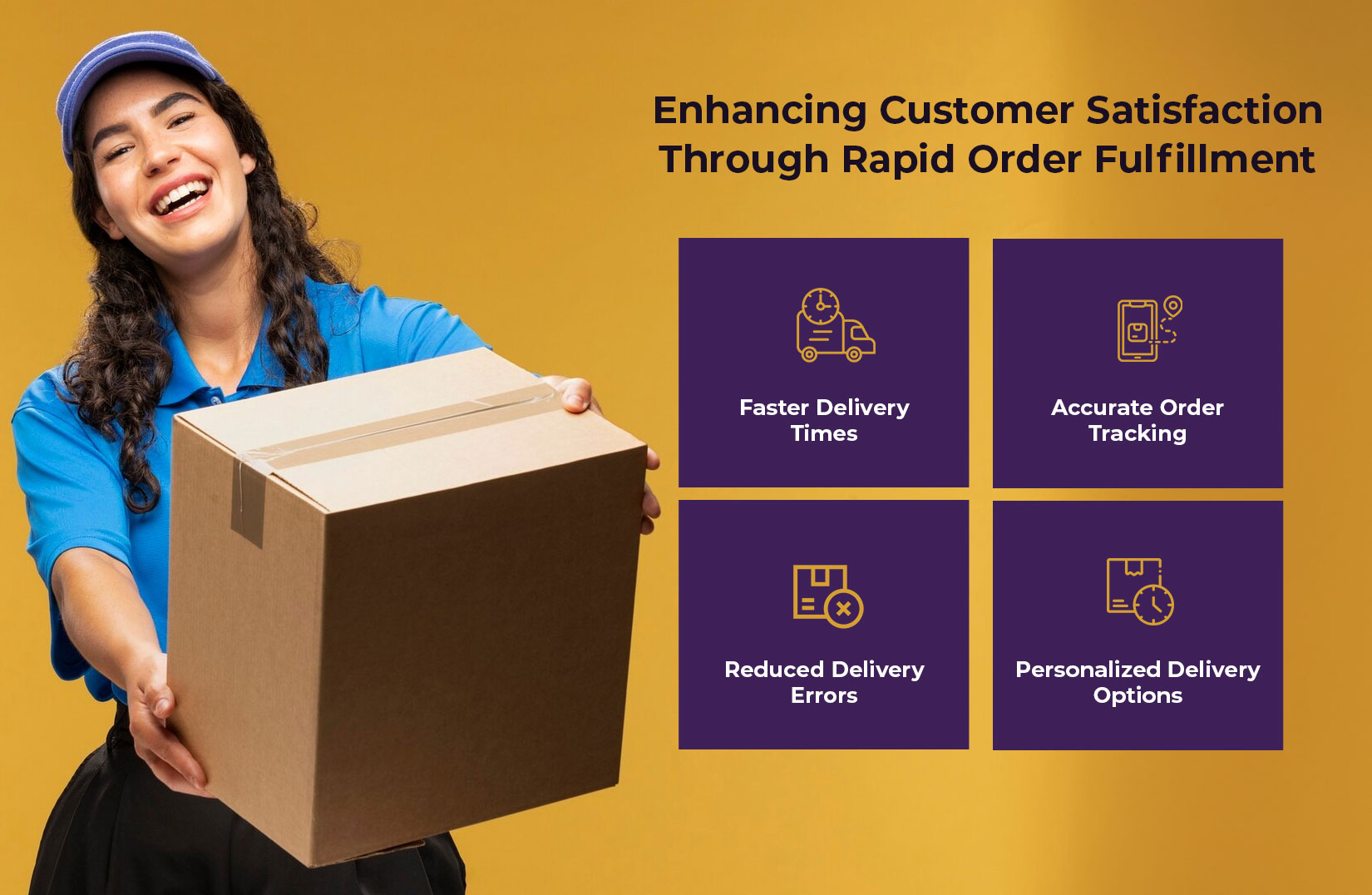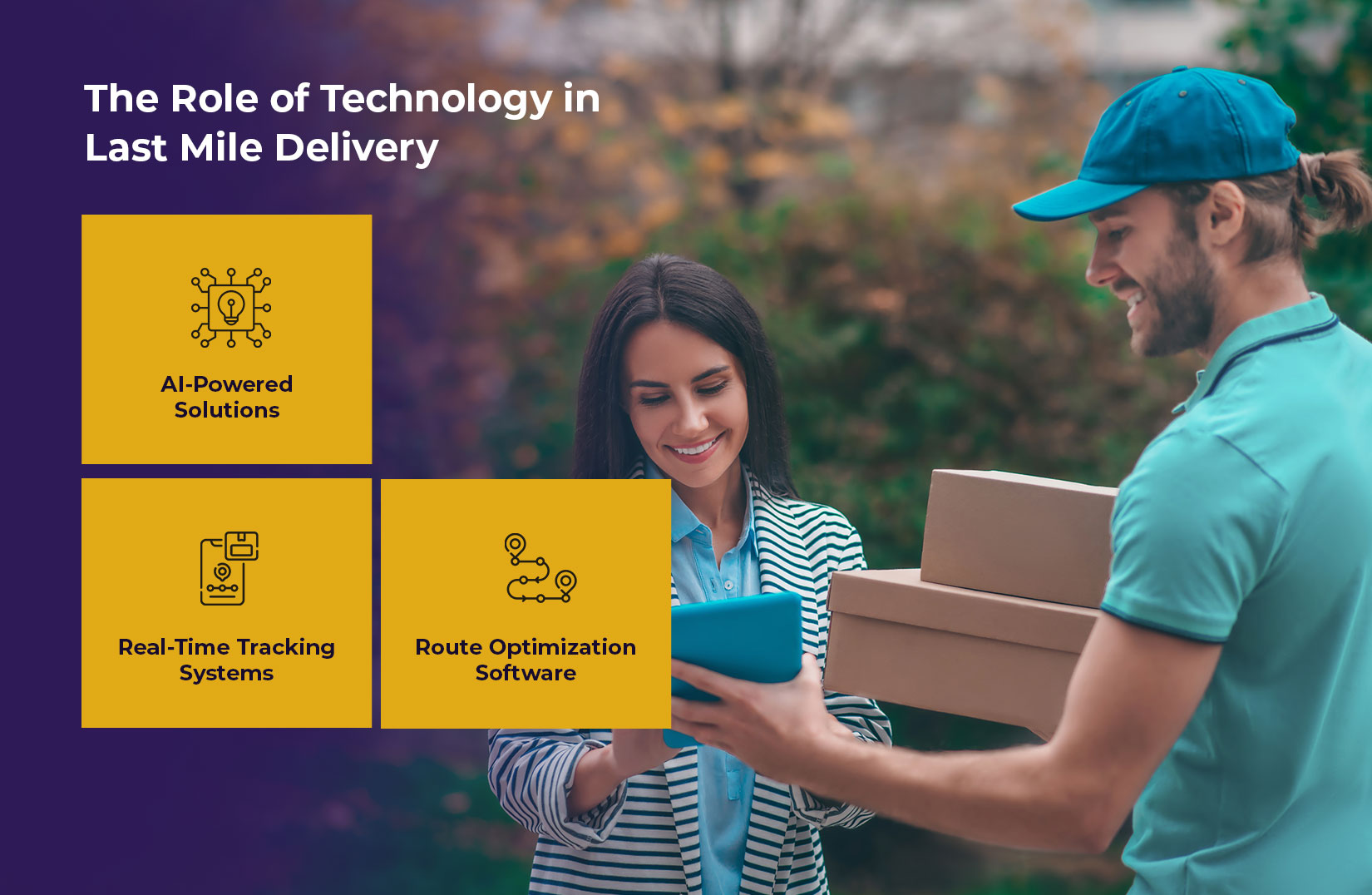
The Impact of Rapid Order Fulfillment on Customer Satisfaction
In today’s fast-paced digital era, customer expectations have evolved dramatically. Speed, convenience and accuracy are now essential elements of a successful delivery process. Businesses across industries are investing in last mile delivery software to streamline their logistics operations and improve customer satisfaction. Rapid order fulfillment has emerged as a key differentiator in meeting customer demands, particularly in areas where competition is fierce.
The Importance of Last Mile Delivery in Rapid Order Fulfillment
The last mile delivery refers to the final leg of a product’s journey from the distribution center to the customer’s doorstep. This stage is the most critical and costly part of the supply chain. According to Capgemini Research Institute, last mile delivery accounts for nearly 41% of total supply chain costs. Efficient last mile delivery can significantly impact customer satisfaction, as timely and accurate deliveries build trust and loyalty.
Businesses that leverage same-day last mile delivery solutions for urban areas are better positioned to meet customer expectations. These solutions reduce delivery times, enhance the customer experience and ensure orders are fulfilled swiftly. For instance, a 2022 survey by Digital Commerce 360 found that 68% of customers consider fast delivery a key factor in choosing a retailer. Similarly, a report by Statista indicates that the global last mile delivery market is expected to reach $62.7 billion by 2030. This growth is driven by the increasing demand for faster order fulfillment. Therefore, adopting AI-powered last mile delivery optimization solutions can help companies achieve faster and more reliable order fulfillment.
Enhancing Customer Satisfaction Through Rapid Order Fulfillment

Rapid order fulfillment directly impacts customer satisfaction in several ways:
1. Faster Delivery Times:
Customers prioritize speed when it comes to receiving their orders. The ability to offer same-day or next-day delivery can set a business apart from its competitors. By using the best last mile delivery software, companies can optimize routes, reduce delays, and achieve faster deliveries. According to McKinsey & Company, more than 50% of consumers are willing to pay extra for same-day delivery services. According to McKinsey & Company, more than 50% of consumers are willing to pay extra for same-day delivery services.
2. Accurate Order Tracking:
Providing customers with real-time updates on their orders improves transparency and trust. Last mile delivery tracking software allows businesses to offer precise tracking information, reducing customer anxiety about their deliveries. A study by Metapack revealed that 96% of consumers expect to be able to track their orders online. Moreover, 83% of consumers are more likely to make repeat purchases from companies that provide reliable tracking services.
3. Reduced Delivery Errors:
Errors in the delivery process can lead to dissatisfied customers and increased returns. Implementing an advanced last mile delivery solution minimizes the chances of incorrect deliveries by optimizing driver routes and ensuring accurate address details. AI-powered last mile delivery optimization solutions can help companies predict potential issues and take corrective actions in real time. Research from Gartner suggests that businesses can reduce delivery errors by up to 30% by using predictive analytics.
4. Personalized Delivery Options:
Modern customers appreciate flexibility in how and when they receive their orders. Offering personalized delivery windows, alternative drop-off locations, and contactless delivery options enhances the customer experience. Businesses that utilize last mile delivery software can efficiently manage these preferences and increase customer satisfaction. According to a PwC report, 73% of consumers consider a good delivery experience essential. They view it as a crucial factor in shaping their overall customer experience.
The Role of Technology in Last Mile Delivery

Technology plays a vital role in improving last mile delivery efficiency. From route optimization to real-time tracking, innovative tools help businesses overcome the challenges of urban logistics.
AI-Powered Solutions
AI-powered last mile delivery optimization solutions analyze large volumes of data to predict the most efficient delivery routes. These solutions consider factors such as traffic patterns, weather conditions, and delivery priorities to reduce delays and improve accuracy. According to a report by MarketsandMarkets, the AI in logistics market is expected to grow significantly. It is projected to expand at a CAGR of 23.6% from 2021 to 2026.
Real-Time Tracking Systems
Last mile delivery tracking software provides customers with real-time visibility into their orders. This transparency reduces inquiries to customer service teams and enhances the overall customer experience. Research by Oracle found that 76% of consumers view real-time tracking as a key factor in their delivery satisfaction.
Route Optimization Software
Route optimization tools help drivers navigate complex urban areas, reduce fuel consumption, and minimize delivery times. By adopting the best software, companies can ensure that their drivers follow the most efficient routes, saving time and resources. Studies show that optimized routing can reduce delivery times by up to 25% and fuel costs by up to 20%
Benefits of Last Mile Delivery Software for Businesses
Investing in advanced last mile delivery solutions offers numerous benefits for businesses, including:
1. Improved Customer Satisfaction:
Rapid and accurate deliveries lead to positive customer experiences. According to PwC, customers are willing to pay up to 16% more for products and services that offer better delivery options.
2. Cost Savings:
Optimized routes reduce fuel expenses and operational costs. A report by UPS indicates that route optimization can lead to savings of over $400 million annually.
3. Increased Efficiency:
Automated processes reduce manual errors and improve overall logistics management. Businesses that use last mile delivery software report a 30% improvement in delivery efficiency.
4. Scalability:
As businesses grow, last mile delivery software can scale to meet increased demand. According to a report by Accenture, companies that adopt scalable last mile delivery solutions see notable improvements. They experience a 20% reduction in delivery time and a 15% increase in operational capacity.
Case Study: How a Retailer Improved Customer Satisfaction with Last Mile Delivery Solutions
A leading e-commerce retailer implemented an AI-powered last mile delivery optimization solution to address delivery delays and customer complaints. The company integrated a last mile delivery tracking software to provide real-time updates to customers. As a result, delivery times decreased by 30%, and customer satisfaction scores improved by 20% within six months. This case highlights the importance of adopting the best last mile delivery software to achieve rapid order fulfillment and enhance customer loyalty.
Also Read: Top Trends to Look Out for Last Mile Delivery in 2025
Conclusion
Rapid order fulfillment is crucial in today’s competitive market, and businesses must prioritize efficient last mile delivery to meet customer expectations. By leveraging same-day last mile delivery solutions for urban areas, companies can enhance customer satisfaction. AI-powered delivery optimization and advanced tracking tools further help improve their bottom line.
Investing in the best last mile delivery software like LogiNext Mile is no longer optional for businesses. It has become a necessity to stay ahead in the fast-evolving logistics landscape. Book a demo with LogiNext and incentivize your business with the best last mile delivery software. Click on the red button to know more.
52







@LogiNext